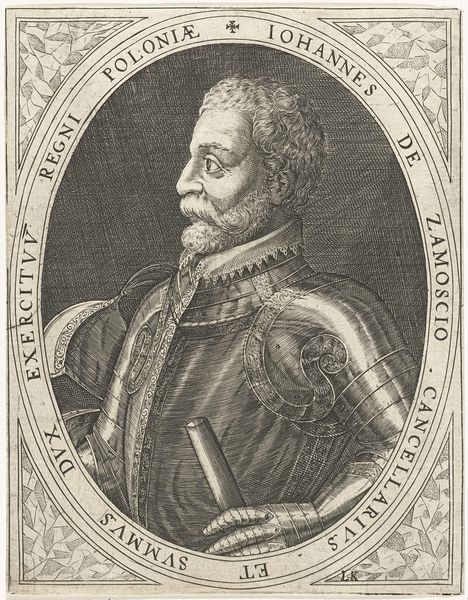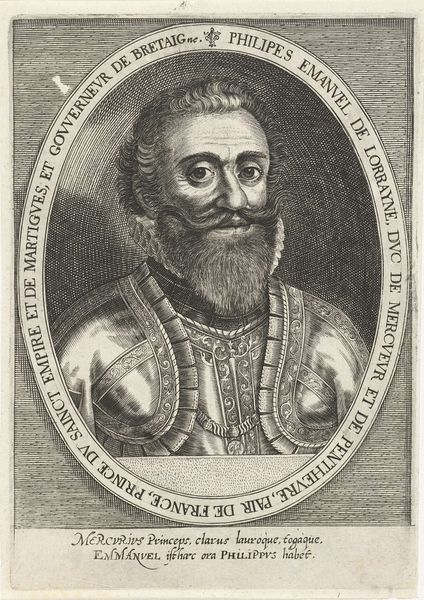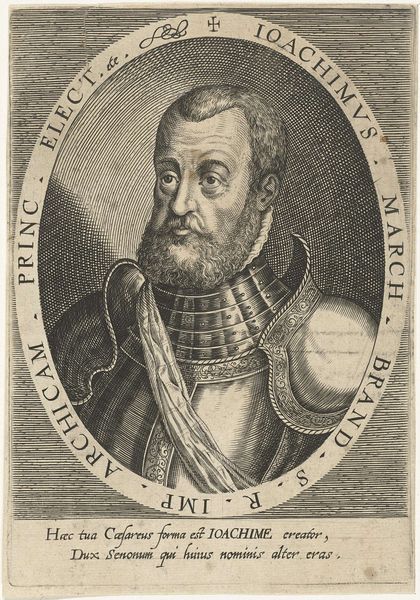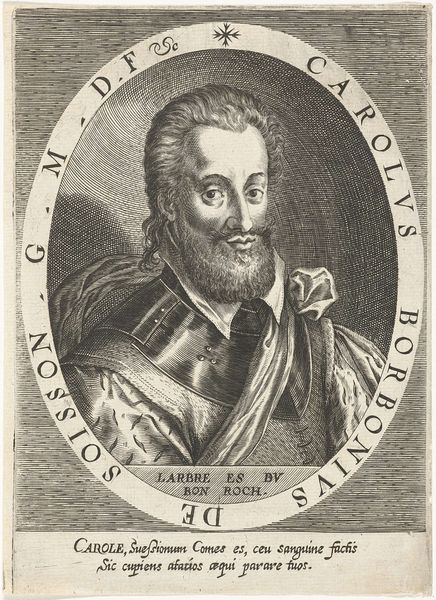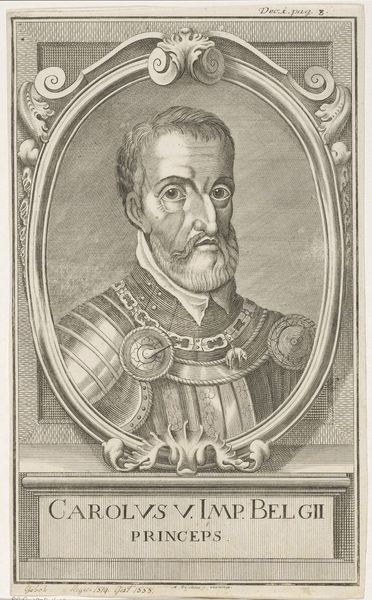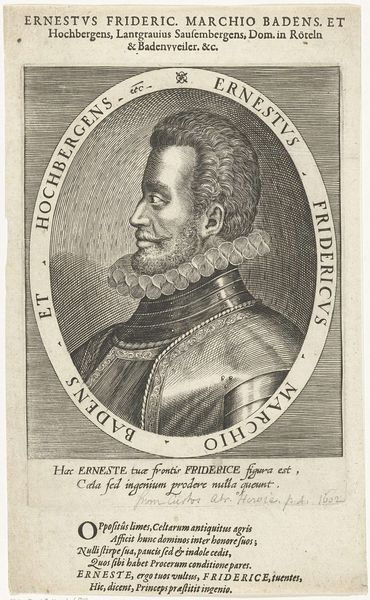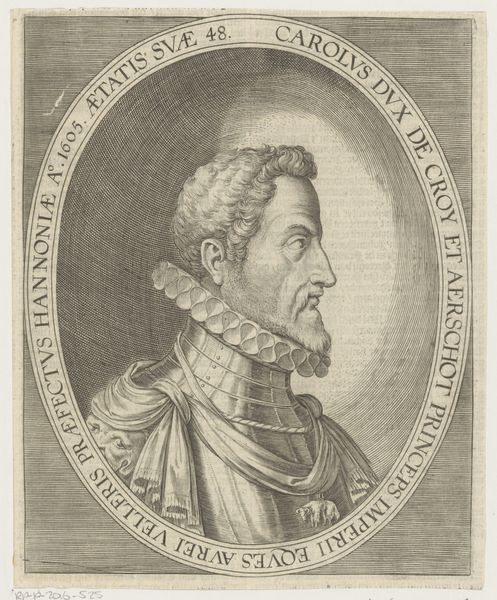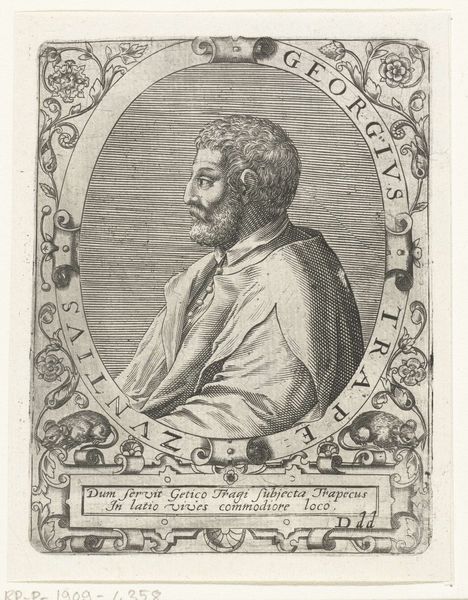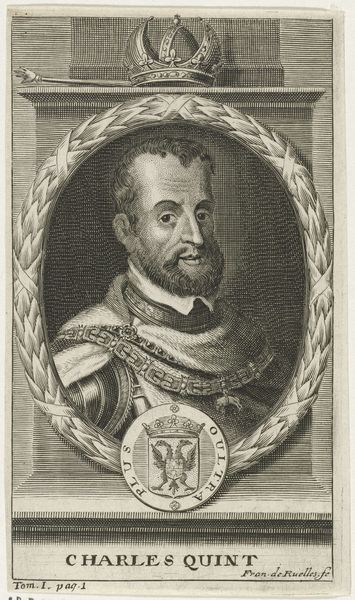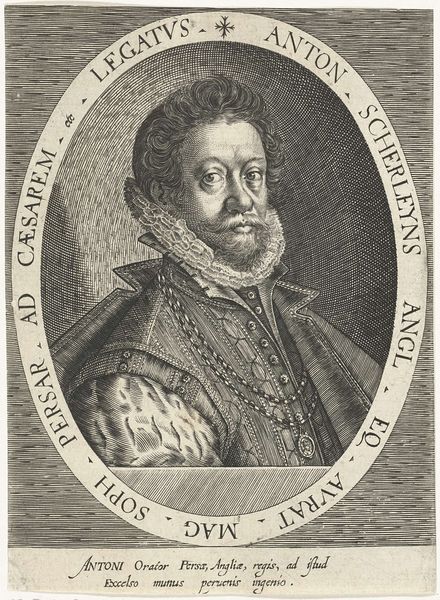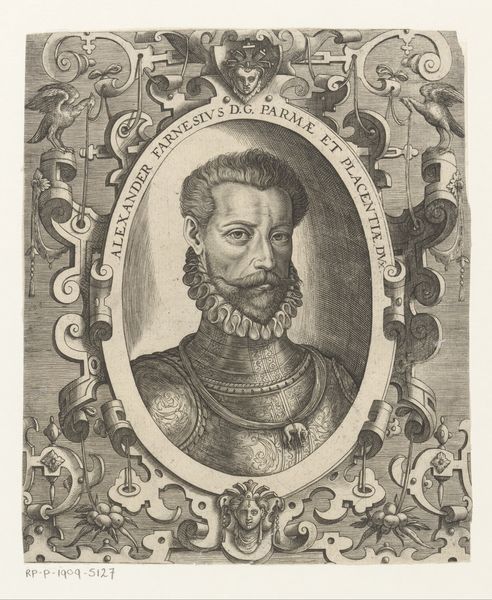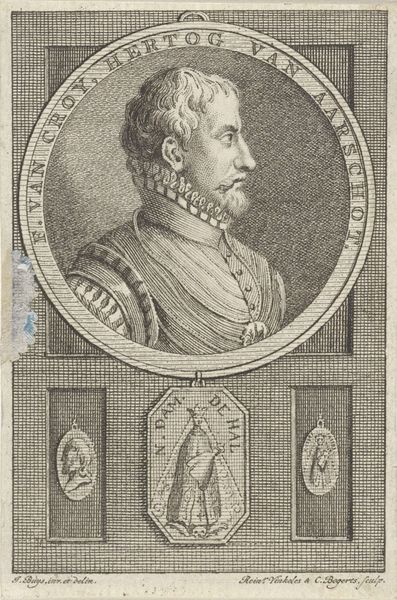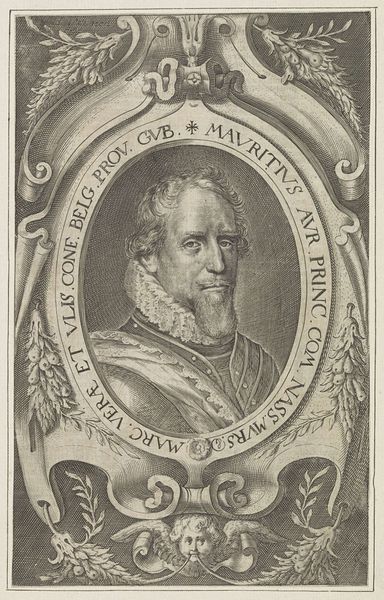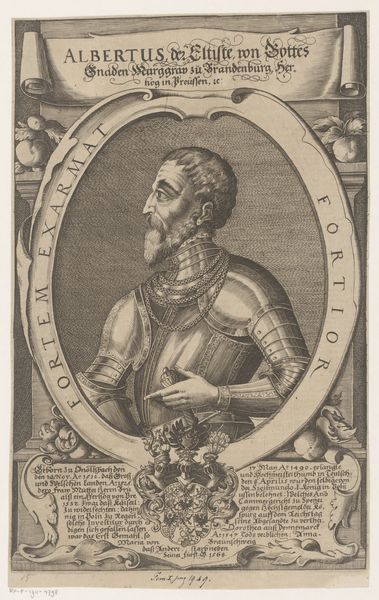
Portret van Fernando Francesco d'Avalos, markies van Pescara 1600 - 1604
0:00
0:00
dominicuscustos
Rijksmuseum
print, engraving
#
portrait
# print
#
mannerism
#
figuration
#
geometric
#
history-painting
#
academic-art
#
engraving
Dimensions: height 177 mm, width 125 mm
Copyright: Rijks Museum: Open Domain
Dominicus Custos created this portrait of Fernando Francesco d'Avalos, Marquis of Pescara, using engraving, sometime between 1580 and 1615. The image presents a figure of military authority, a powerful symbol during a period marked by religious conflict. Engravings like these were crucial for disseminating images of power. Consider the institutional context: portraiture was no longer exclusively for royalty, it became a tool for projecting status and authority among a broader elite. D'Avalos, a key figure in the Habsburg army, is shown in profile, clad in armor. This is a classical pose that recalls images of Roman emperors. The Latin inscription reinforces his image as a leader and conqueror. Understanding this image requires historical investigation. What was the role of the Habsburgs at this moment in time? How did figures like D'Avalos contribute to their political and military ambitions? Research into the history of warfare, European aristocracy, and the production and circulation of printed images will help us fully understand the cultural and social work this image performed.
Comments
No comments
Be the first to comment and join the conversation on the ultimate creative platform.
